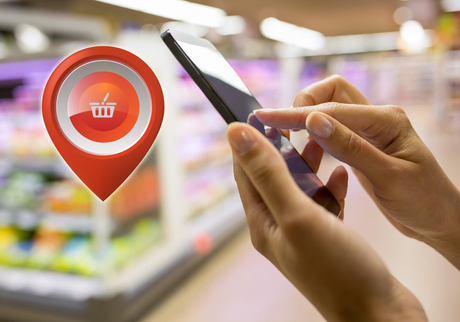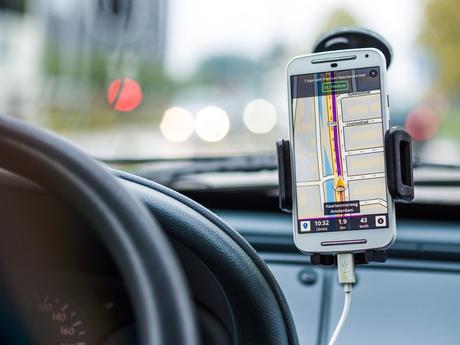Due to the ever-evolving technology and an endless source of information available online, an increasing number of people are accessing the information they need on-the-go. The ecommerce industry is flourishing, as the number of online shoppers keeps growing with each coming day, making it tough for the owners of brick-and-mortar stores to keep up.
However, the time has come when offline retailers can also leverage modern technology in order to provide their customers with exactly what they want – when and where they want it. Not only can they meet the needs of their customers while they are on the move, but they can also effectively win back those consumers that they have lost due to the convenience of ecommerce.

Location-based services have made it possible for both online and offline retailers to target specific types of consumers and offer their products or services to them in order to try and engage these customers in their brands. However, location-based services are much more than simple GPS technology, as they offer the possibility of connecting with consumers on a more personalized level, due to their personal information and interests, helping the retailers provide their customers with relevant and useful information.
Location-based marketing has started to play a very big role in business strategies of many marketers this year and its peak is yet to be seen, as it is expected to be widely used in the coming years, especially with the constant increase of mobile use and the importance of mobile marketing.
What Exactly Is Location-Based Marketing?
Location-based marketing is a marketing strategy that uses a mobile device’s location provided by GPS technology to pinpoint the exact location of a targeted consumer in order to provide them with an offer from a nearby business that they would be interested in. It allows companies to target customers individually based on their personal information that they share when they download particular mobile apps and on their location at a particular moment, enabling marketers to provide the targeted consumers with relevant and personalized offers.
Location-based marketing is not a new strategy in the online world. Location-based services have been used for a long time to locate the internet users by using their IP address in order to offer them information and advertisements from nearby businesses that they would find relevant. Marketers across the world have been using this benefit of location-based marketing due to search engines tipping off the specific users’ locations and enabling them to target those users.
However, with the growth of mobile use and mobile marketing becoming one of the crucial types of marketing nowadays, location-based marketing has expanded quite a bit and it has become an essential element of an effective mobile marketing strategy.

How Can Location-Based Marketing Help Your Mobile Strategy?
Consumers share their personal information, such as demographics, location and shopping preferences, with particular brands when they download their mobile apps. They do so because they want to be updated on any new information provided by those particular brands.
Location-based marketing enables you to use this to your advantage and provide your target consumers with personalized offers. For instance, if one of your target consumers who has installed your mobile app visits a mall where your coffee shop is located, you can use your app to send a push notification to that particular consumer’s mobile device and present them with an offer to visit your shop and try your coffee. This type of marketing automatically lures in targeted consumers, since it offers them something they are actually interested in, instead of advertising something they will not find either useful or relevant.
This particular use of GPS technology in mobile marketing is called geo-fencing and it signals your mobile app whenever your consumers are in the vicinity of your store, enabling you to present them with the day’s offer, new discounts or any other offer you may have.
Apart from geo-fencing, there are geo-targeting and beacon technology. Geo-targeting enables you to send tailored messages to your target customers based on a specific geographic area. For instance, if you own a restaurant in New York City, you can use geo-targeting to send special offers to your target customers located in the city, instead of sending it to someone across the globe.
On the other hand, beacon technology is used to target customers with extreme accuracy and provide them with a very personalized shopping experience. For instance, if your customer is walking through your retail store and stops by the jeans’ section, your store’s app can use indoor beacons within your store to send a push notification to the customer’s phone and present them with the current discount on the jeans.

As they walk by another micro-location in your store, they will receive another push notification related to a particular product they walked by. This is really taking mobile marketing to a whole new level and more and more business owners are certain to start deploying indoor beacons within their stores, as it will provide them with a powerful tool in their marketing toolbox.
One of the best benefits of location-based marketing is the possibility to learn more about your customers. It enables you to learn more about their preferences and shopping desires, helping you know exactly how to satisfy those desires. How is that possible? Since location-based technology allows you to locate your customers, you can pinpoint all the places they have been to and, thus, learn about their buying behaviours.
Therefore, not only can you connect with your target customers whenever they cross the virtual perimeter around your store and present them with your offer, but you can also get to know them better and, thus, adjust your marketing strategy to meet their needs and improve your overall business.
This is the main idea behind location-based marketing and you should definitely include it in your mobile strategy, since it will certainly provide you with excellent benefits and help you grow your business. What’s more, you will be able to build trust with your customers and increase customer loyalty, since they will be engaged in your brand quite a lot more when you provide them with a personalized shopping experience.
After all, it all comes down to your customers, and location-based marketing is perfect for reaching them on-the-go and satisfying their needs, thus greatly improving your mobile marketing strategy.
Dos and Don’ts of Location-Based Marketing
If not done properly, location-based marketing cannot really bring many positive results. If the location data is not properly used, it can actually backfire and cause a great loss in both time and money. Therefore, you need to understand exactly how to use the location data you have access to in order to improve your mobile marketing strategy and, thus, your overall business.
Since privacy is one of the primary concerns of location-based services, you need to know how to approach your location-based marketing in order to not only protect your business against any potential lawsuits, but also mitigate the risk of losing your customers.
You need to assure your customers that their personal information will be secure and never misused and, of course, practice what you preach. You must never use the information they provide you with for purposes not related to your business, that is, your marketing campaign.
Furthermore, you must never share their personal information with any third-parties or collect that information without their previous consent. Therefore, don’t use default options that automatically collect data regarding your customers’ location, personal information or any other type of information. Instead, provide a clear disclosure about the collection of their data and don’t collect it without obtaining their consent.

Also, your customers must know exactly what personal information will be collected if they opt in, as well as what information will perhaps be shared. If the information about their location is being shared, you need to provide your customers with a periodic reminder about it. Being straightforward and transparent with them about the data is key, not only for the success of your marketing campaign, but also for building trust with your customers and winning their confidence.
When presenting your customers with these disclosures about the use of their personal information and location data, you should not use technical jargon, but only plain language, so that they can clearly understand all of the disclosures.
Which Marketers Are Winning with Location-Based Marketing Tactics?
Facebook, Instagram, Google Places and Foursquare are just some of the examples of brilliantly leveraged location-based services. Facebook enables its users to search nearby locations that their Facebook friends have been to, as well as allowing them to check-in to any particular location, while Instagram uses geo-tagging feature that takes brand experiences to a whole new level. Foursquare, on the other hand, greatly helps businesses by allowing them to provide discounts and any other offers in exchange for a check-in.

Zomato is another excellent example of location-based marketing done right. The app works with social media and enables its users to check-in to a number of restaurants, while also being presented with a number of features, such as leaving reviews and ratings. It provides the users with a very effective incentive alert strategy that helps improve one’s marketing strategy.
Conclusion
It’s not only the marketers who are winning with location-based marketing – the consumers are also enjoying its benefits, because of the convenience it provides them with. It is, without a doubt, the most effective way of reaching your customers on-the-go and engaging them in your brand, so you should not miss out on the excellent business opportunity of utilizing location-based marketing.
- About
- Latest Posts

Siya Carla
Siya is a social media enthusiast with a background as Web and UI designer, and is Social media manager of Finoit. She has deep inclination towards writing about emerging technologies,Web and Mobile app development and other technology related stuff.
Latest posts by Siya Carla (see all)
- How Is Location-Based Marketing the Best Mobile Strategy? – October 4, 2016
- For Your App’s Success, 7 Mobile App Tests you should Try NOW! – September 27, 2016
- iMessage App Store – What Does It Mean for a Marketer? – September 15, 2016
